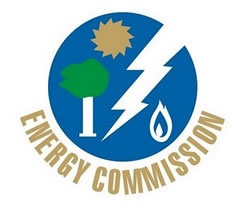
An energy conservation programme is set to be rolled out by June 2015 as part of measures towards tackling the country’s perennial power crisis which has so far taken a huge toll on several businesses.
This involves the switch to a more energy-efficient lighting system using Light-Emitting Diode – (LED) bulbs.
A similar exercise was conducted in 2007 which saw a shift in the use of incandescent bulbs to the Compact Fluorescent Lighting (CFL) ones across the country.
Mr. Felix Darko, the General Manager of Philips Lighting West Africa speaking at an energy conservation seminar organised by Philips Ghana, said businesses as well as households have the opportunity to slash their power consumption in respect of lighting by half if they switched to LEDs.
“There is an opportunity in the area of lighting in addressing this problem. If you take total energy use in the offices, lighting alone accounts for over 19% of that. If you’re able to bring about a reduction, it would not only tell in the pockets of the consumer or the bottom line of the business to benefit from these solutions today.”
Mr. Darko added that businesses have a pay-back period of less than one year to recover their investments so “if this investment is made, the energy savings are able to pay for that investment, and because LED has a longer life span because it has in excess of thirty thousand hours, it means that whatever you’re getting today will be there for many years to come.”
He indicated that the country could reduce the pressure on the national grid if steps are taken to get Ghanaians to switch to LEDs.
Dr. Nii Darko Asante, Director at the Technical Regulations and Energy Efficiency Office of the Energy Commission, said the country could take advantage of the current energy situation to diversify the energy sector.
He explained more Private Power Producers (PPP) have indicated their preparedness to start production in the country but only if they are assured of reliable gas supply.
He said the Commission is trying to “streamline the processes so that more private companies will come in and generate power so that we don’t have this kind of crisis in the future.”
He added however, that there are some bottlenecks that stop these companies from coming into the country.
For instance, he said, “When they put up those plants they would be paid. If you have a private company coming to build a plant and they are not sure they will be able to break even and make some profit they won’t come. People should be ready to pay realistic tariffs so that they can cover the cost.”
In 2007 when the Energy Commission spearheaded the switch from incandescent lighting to the Compact Fluorescent Lighting (CFL), a ban was placed on the use of incandescent bulbs. The Commission adopted the use of promotion and enforcement.
The price difference between the incandescent and the CFL according to the Energy Commission were not so much and so it was a lot easier to implement.
However, with the LEDs the Commission says “the price range is a little higher so it is a slightly bigger task to embark on and because government does not have the money to spend on initiatives like this we’re rather coaxing people to switch to LEDs.”
Dr. Nii Darko pointed out that it would be to the advantage of businesses and households if they switched to the LEDs since it lasts longer and consumes less wattage.
He added that the legislative instrument is yet to be passed by parliament “but there will be no obligation on anybody to buy LEDs but at least the framework will cover that and the ‘star ratings’ will be updated to reflect that as well.”